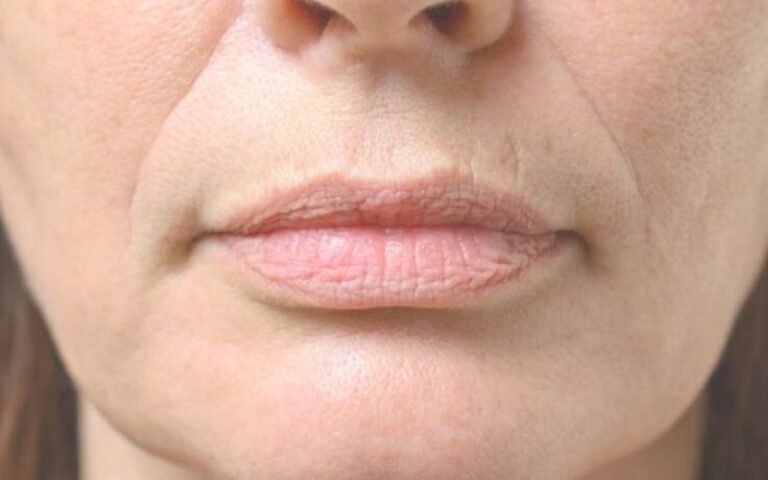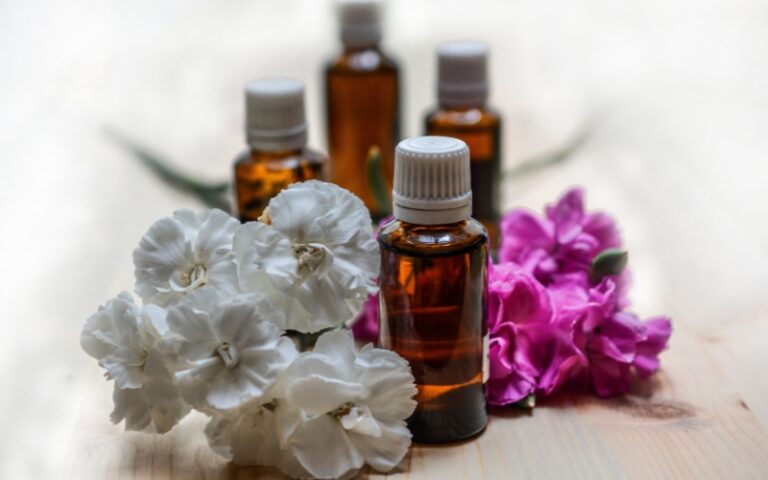Sensitive Beauty: Self-Care Tips For Sensitive Skin

Skin sensitivity can strike at any time. It’s challenging to take care of delicate skin, and it’s even harder to keep it looking beautiful. Extra care and upkeep are needed to shield your delicate skin from the elements and stop it from becoming damaged.
Managing sensitive skin is crucial to avoid aggravating any underlying skin disorders. Your skin will look and feel better using the correct skin care products. Find out more about taking care of sensitive skin.
Vital Skincare Tips For Sensitive Skin
To protect and soothe your skin and help avoid those annoying reactions, adopt these straightforward sensitive skincare tips:
- Slay off your makeup at the end of the day with a soap-free mild cleanser.
- Protect your skin from the harmful effects of UVA and UVB rays with the help of broad-spectrum sunscreen.
- Avoid long, hot showers.
- Protect your skin from environmental pollutants or irritants.
- Moisturize your sensitive skin twice a day.
- Keep away from unpleasant skincare products. Before putting it on your skin, conduct a patch test.
Now, let’s uncover some more essential tips to treat your symptoms and a skin care regimen for sensitive skin.
1. Choose The Skin Care Products With More Care
While many people occasionally experience skin reactions after coming into contact with certain products or ingredients, some may experience recurring problems. As allergens can more easily penetrate dry, broken skin, the healthier your skin is, the less reactive it will be.
- Use a non-soap cleanser instead of soap to keep your skin healthy because soap can deplete your skin with its natural oils.
- To assist in reinforcing your skin’s top layer, apply a moisturizer containing ceramides afterward (a good bet is CeraVe moisturizing lotion).
- Additionally, utilizing cosmetics branded “hypoallergenic” or “for sensitive skin” is an excellent place to start if your skin is extremely reactive, even if there are no industry guidelines for these items.
- Avoid fragrance, which frequently triggers allergies, and anything marked “antibacterial” in the first place – ingredients such as alcohol and triclosan can cause the skin to dry.
- To help keep your skin balanced, use sensitive skin products high in moisturizers; Dimethicone, glycerin, and petrolatum are all excellent, typically well-tolerated choices.
Also, remember that the fewer substances you apply to your skin, the less likely you are to experience an adverse reaction.
2. Do Not Use Products Prescribed For Others
Dermatologists usually prescribe a product customized to an individual’s skin needs. The strength of the product and ingredient may vary. When people with sensitive skin use products defined for others, it could damage, dry out, or make their skin more sensitive.
3. Sharing is Not Caring For Sensitive Skin
Even though you, your friend, or your family member have similar sensitive skin issues, using the same products is not advisable. The product strength may vary depending on your skin needs – either low or high for your skin.
Furthermore, scooping out the same jar-based products with fingers may increase the chances of leaving behind contaminants and bacteria from the nails in the jar, which could further irritate your skin.
Again, sharing beautifying tools such as face sponges and cloths, makeup brushes, and other skin rejuvenating tools are also not advisable. Frequent sterilization of tools is a must to avoid untoward triggers.
Therefore, avoid sharing any skin care products or tools with others. And, also be conscious about using your fingers clean before taking cream from jar-based or tube-based products.
4. Change Your Pillow Covers Often
Your pillow, no matter how cozy, inviting, or soft you may think it is, could be the biggest culprit to your skin, as it can interfere with your beauty routine, promote irritation, exacerbate signs of aging, and leave you waking up in worse shape than when you went to bed for your necessary beauty sleep.
Pillows absorb sweat, oils, dirt, bacteria, the nighttime skincare routines, etc., from your skin. With regular use, these accumulate on your pillow covers. When your sensitive skin comes into contact, it might exacerbate or cause breakouts.
Sometimes, harsh detergents with synthetic fragrances also cause redness and irritations on your skin.
5. Say A Big “No” To Allergens
We all know that eating healthy reflects on our skin health. But certain foods negatively impact skin by triggering zit, blemish, or acne. Hence, before opting for any skincare products or facial treatments, try to analyze if you have any food intolerances.
People with sensitive skin may experience rashes, hives, or inflammation and even aggravate underlying skin conditions when they consume dairy products. If intolerant to gluten, you may notice scaly, bumpy, itchy skin rashes.
Soy protein, high-glycemic foods, and red and white wine are other foods that may trigger untoward symptoms in people with sensitive skin.
6. Effects Of Hard Water On Skin
The quality of water also impacts your external skin health. Depending on your region, the hard water may contain certain minerals found at high levels, which may be harsh on your skin.
Furthermore, it isn’t easy to thoroughly rinse any soap or shampoo lather completely off your skin and hair, leading to residue buildup. As a result, it will trigger your skin’s sensitivity due to the dryness and irritation caused.
Also, the minerals in the hard water may worsen underlying skin conditions such as psoriasis, eczema, or pityriasis.
7. Fond Of Nose Piercing? Avoid These Metals
Although piercings are fashionable and chic, they must be performed with the best metal possible to prevent skin irritation-related inflammation. Some metals are deemed safe for body piercing, whereas others are not. A bad metal might slow healing or cause an allergic reaction, so be careful what you put on your body.
Some metals have the potential to oxidize when in touch with bodily tissues and fluids, which can have devastating effects on the area being penetrated.
Remember, nickel, tin, zinc, and brass are low-grade metals not recommended for piercings because they can irritate the skin and induce allergic reactions. In extreme situations, they can even cause the body to reject the piercing.
Titanium is an ideal metal for initial piercings and suits most people, even if you have sensitive skin.
8. Give A Thought Before Waxing
Waxing may strip away the essential oils from the skin and its barrier. Hence, if you have sensitive skin and desire to wax, take professional help. The professionals may have in-depth knowledge about skin types and may be able to give you the right type of waxing for your skin. They might also suggest a patch test to determine your skin’s reaction to the wax.
Hard wax is believed to be the right choice for sensitive skin since it can be removed by your hands, eliminating the need for waxing strips.
Sensitive Skin-Friendly Ingredients
Less is more for those who have delicate skin. Choose products with plain product labels and make informed decisions while selecting your skin care products. Just a handful of these organic nutrients will get your skin on the road to calmer, happier skin.
Natural ingredients are always a sure bet for soothed, smooth skin. Here are a few natural skin-friendly substances that are mild and gentle:
- Willow Bark: The extract has been used for centuries to soothe irritated skin. It is rich in flavonoids, tannins, phenolic acids, and other minerals, all of which aid in cell rejuvenation leading to a more youthful, refreshed complexion. The anti-inflammatory and antibacterial properties soothe the skin and alleviate any skin condition.
- Witch Hazel: It has been utilized for generations to treat inflammatory and irritating skin disorders. Witch hazel is a holy grail for anyone with sensitive skin, body acne, or clogged pores. It frequently appears in toners or spray bottles.
- Chamomile: Chamomile provides many more benefits for people with sensitive skin. This traditional herb combats environmental irritants that frequently aggravate sensitivity by naturally detoxifying your skin. The anti-inflammatory effects of chamomile also reduce swelling, itching, and redness.
- Edelweiss Extract: Edelweiss extract is made from a flower found in the Swiss Alps. Antibacterial, anti-blemish, anti-inflammatory, and antioxidant properties are present in it. Along with leontopodic acid, which fortifies the skin’s barrier and makes it more resistant to environmental assaults, it also contains lignans, a type of molecule with a naturally relaxing effect on the skin.
- Centella Asiatica: A perennial herb called Gotu kola or Tiger Grass, has antioxidant-active substances. A rich source of amino acids is another benefit. It is quite good for soothing the skin when it is in a flare-up, like after a chemical peel, an IPL procedure, or in between applications of retinol. It is also quite excellent at hydrating the face.
- Tamanu Oils: The anti-inflammatory properties of tamanu oil is good for eczema and sensitive skin. Include this oil in your daily routine to fight premature signs of aging.
- Calendula: This blossoming beauty has many nutritional and therapeutic benefits. Calendula’s anti-inflammatory properties make it a particularly useful skincare ingredient for sensitive skin. As a result, calendula helps hasten the skin’s natural healing process while assisting in the fight against the redness and irritation associated with dermatitis and eczema.
- Rose: Rose is well-known for its alluring aroma and stunning appearance, but it’s also a fierce foe of irritability and a friend of sensitive skin. The antioxidant-rich composition of rose water makes it a multifunctional ingredient that is gentle enough for delicate skin while still providing significant calming and energizing effects. Rose water can aid in soothing dry, irritated, or inflamed skin due to its ability to retain moisture and act as an anti-inflammatory.
No matter what skin you have, you should never apply anything without ensuring it will work well with your skin. For people with sensitive skin, this is especially true.
Choose a small, undetectable area of skin to test a new product on, such as behind your ear or the inside of your elbow. Check for any indications of redness or irritation 24 hours later. If you notice raging skin, leave that ingredient or add it to your skincare routine.
The Way Forward
Try using the above skin-friendly natural ingredients in your everyday beauty routine to experience the advantages. Some of these substances help balance pH and are mild enough for even the most delicate skin, encouraging healthy cell turnover while unclogging pores and normalizing skin tone. Some elements help calm and soften your skin and fight free radical damage and indications of aging.
Your sensitive skin has to be calmed and kept clear, so it’s critical to follow a regular skin care regimen.
FAQs
1. What are the potential triggers of sensitive skin?
Cleansers, soaps, detergents, perfumes, dirty towels, skin care products, and certain metals in ornaments can cause untoward reactions in people with sensitive skin.
2. Is cleansing good for sensitive skin?
Yes, cleansing can be beneficial for your skin, but you have to choose the right product with the right ingredients that are mild and gentle on your skin.
3. How often should I exfoliate my sensitive skin?
Exfoliate your skin once a week to avoid any skin irritation and dryness. Also, refrain from using mechanical exfoliators on your skin since they can trigger more sensitivity and dryness.
References
- Sensitive Skincare Tips: https://www.simpleskincare.in/blogs/tips/7-sensitive-skincare-tips
- Must Know Beauty Tips For Sensitive Skin: https://www.stylecraze.com/articles/must-know-beauty-tips-for-sensitive-skin/
- A Skin Care Routine For Sensitive Skin: https://eminenceorganics.com/ca/blog/2020/12/02/skin-care-routine-sensitive-skin
- Skin Care Ingredients for Sensitive Skin: https://www.webmd.com/beauty/features/skin-care-ingredients-sensitive-skin
- Best Ingredients for Sensitive Skin: https://www.beautyingredients.com/8-best-ingredients-for-sensitive-skin
- Best Ingredients for Sensitive Skin: https://www.100percentpure.com/blogs/feed/the-6-best-ingredients-for-sensitive-skin
- Dermatologist Answers About Your Sensitive Skin: https://www.goodhousekeeping.com/beauty/anti-aging/tips/g1382/sensitive-skin-solutions/
- Best and Worst Metal for Ear and Nose Piercing: https://blomdahl.com.au/blogs/blogs/piercing-101-best-and-worst-metal-for-ear-and-nose-piercing





